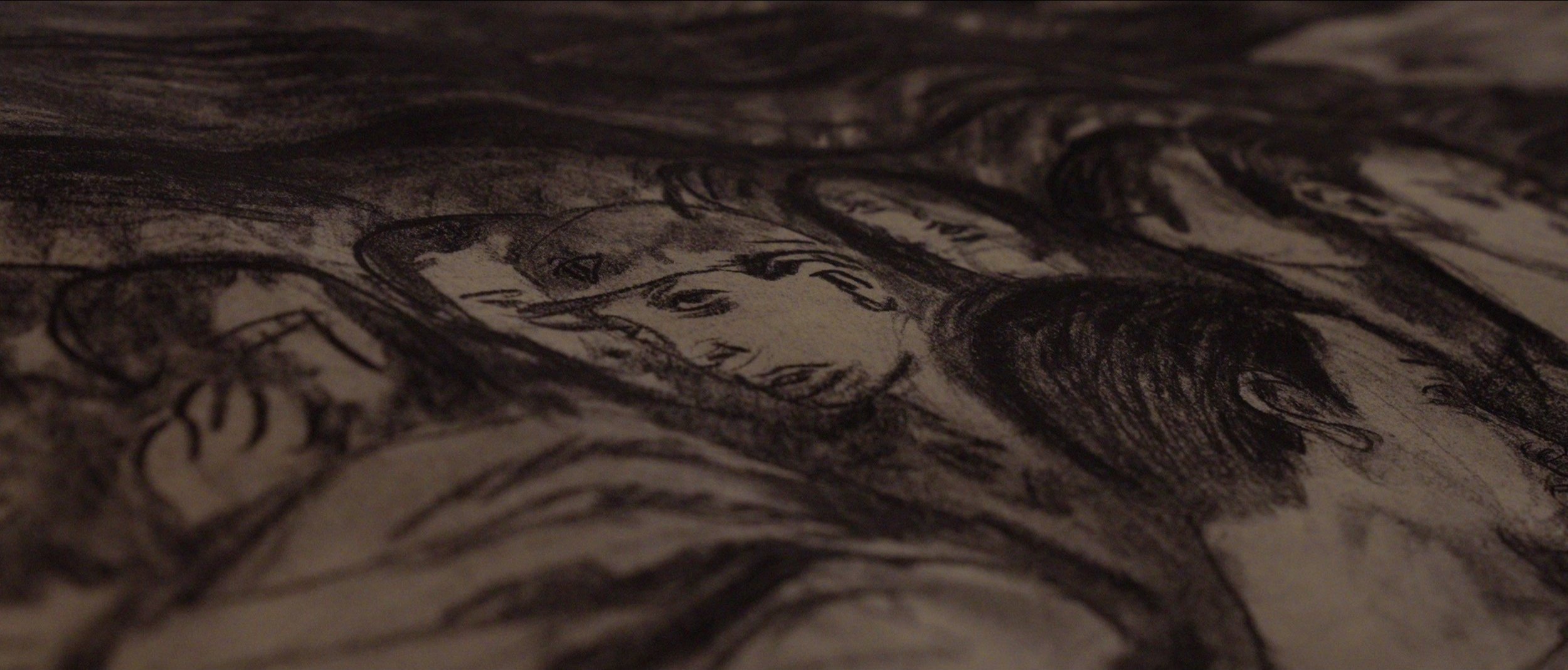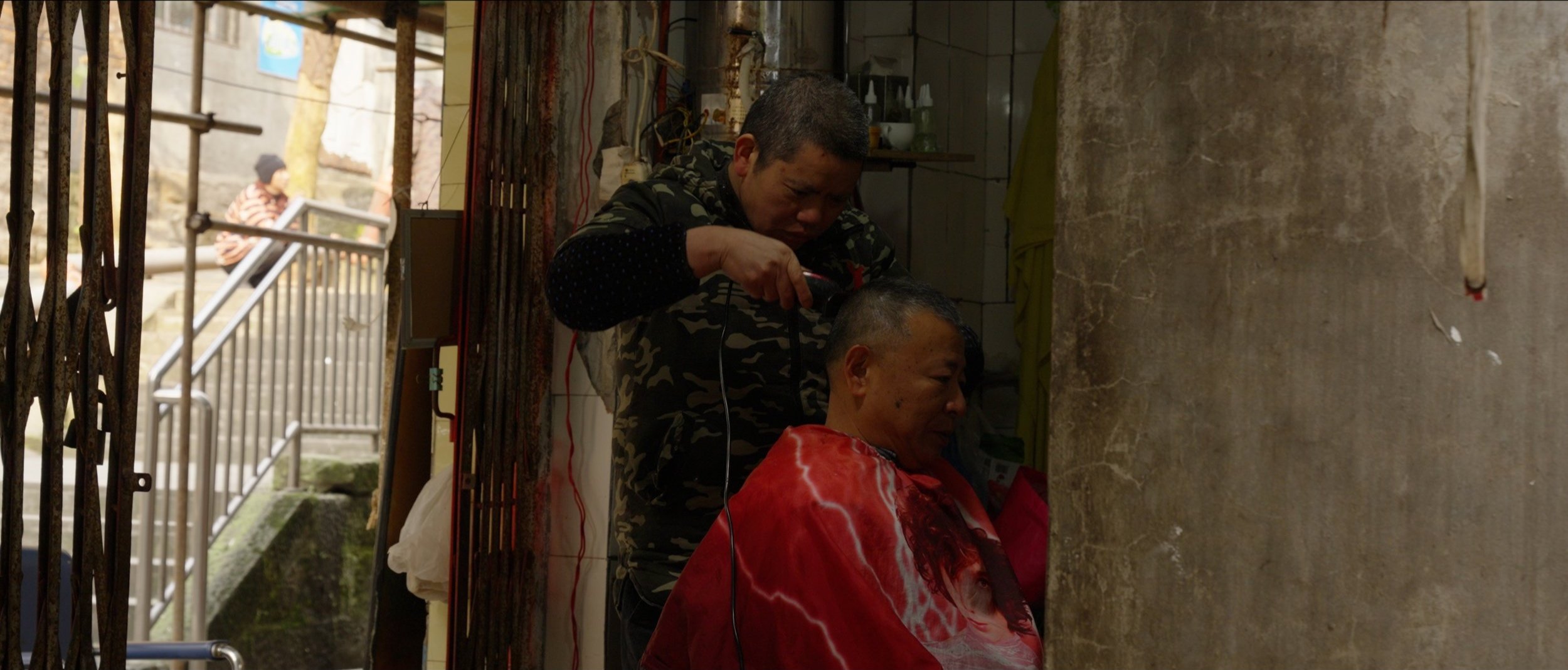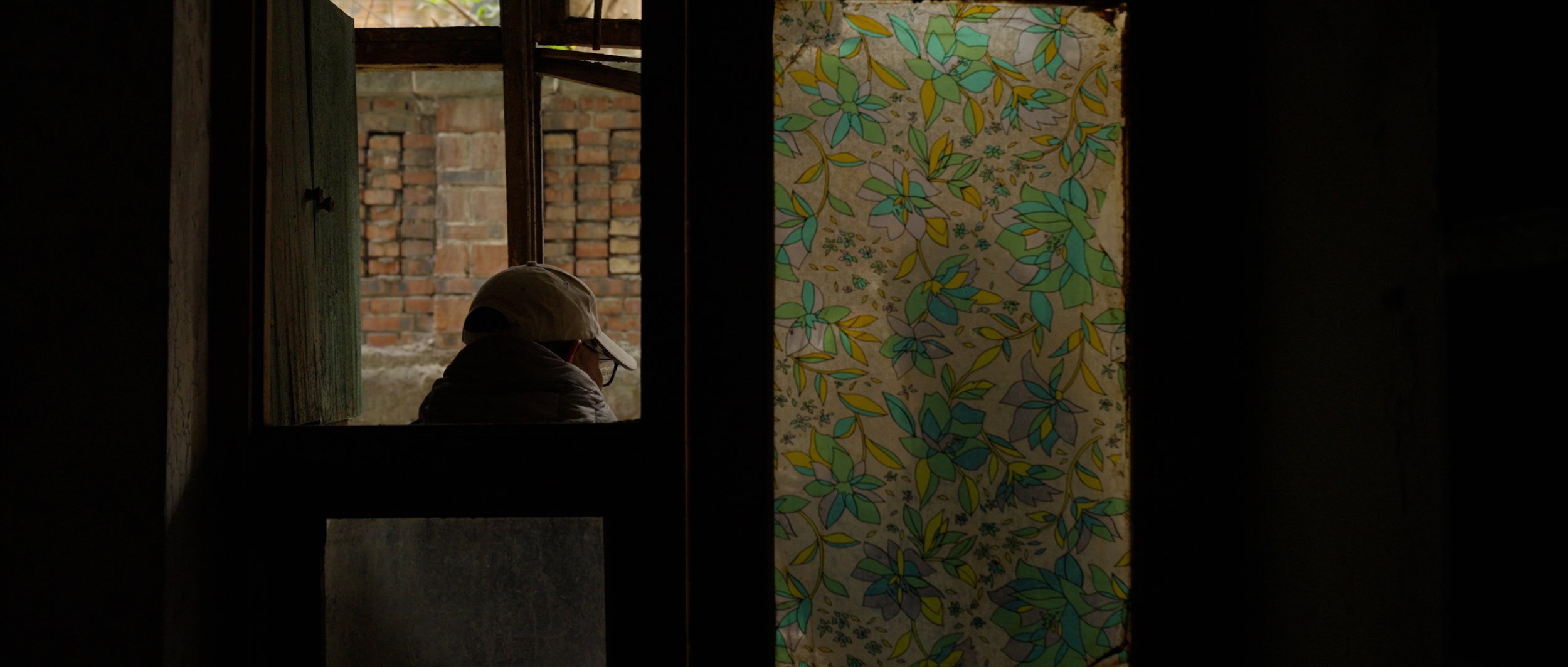Logline
A filmmaker follows her father, an artist, in search of his childhood home in Southwestern China, fulfilling a wish of his aging mother. Changed by the tides of history, the streets are unrecognizable. Father and daughter meander through time contemplating what it means to see and make images.
Technical Info
aspect ratio: 2.35:1
language(s): Chinese
exact length: 19 minutes 58 seconds
Year: 2024
Genre: Documentary
Interview
“The filmmaker and the flâneur—In conversation with Shirley Yumeng He”, by Anqi Shen, Faithful Correspondence
Reviews
“Each frame resembles a painting, and every moment brims with beauty and melancholy. If you’ve ever visited an old home, you’ll know exactly how it feels.”
“Mostly a type of travelogue, with the camera following the father most of the time, “Other Side of the Mountain” also includes a number of elements that make it seem somewhat experimental, while adding an audiovisual flair to the whole thing. The scene in the bus with the almost outwardly narration about Mao and the final scenes, which also move towards more art paths, are indicative. The combination of the two elements works particularly well, also due to He’s excellent editing, while adding to the aforementioned ‘discussions’ between father and daughter. Lastly, a gesture of love and affection closes the doc in the best fashion.
“Other Side of the Mountain” is a little gem of a film, that manages to present its comments eloquently even at just 19 minutes.”
Artist Statement
In 2017, the house that I grew up in was torn down for urban renewal. I was visiting China when my grandparents signed off their former home back to the government. Impermanence was never foreign to me or anyone who had witnessed the country’s enormous development and changes. As a documentary filmmaker, I am drawn to the temporal quality of audiovisual durational media. The interwoven past, present, and (sometimes) future make filmmaking my creative outlet in contemplating the relationship between the individual, the collective, and the societal, cultural, and environmental changes. For a while now, I have been making films that reflect on our connection with landscape and places, particularly how landscape can be a mirror/container of memories and desires. In my previous films, I’ve explored places like the historical San Francisco Chinatown and the drained-up landscape of the Central Valley. I decided to return to contemporary China for this project as I continued to be haunted by the images of shifting landscapes I had seen over the years. To borrow Jacques Derrida’s term, hauntology signals an ethical responsibility being asked of the haunted. China’s development plan is one that largely neglects the environmental consequences and brushes over personal and collective sacrifices and loss. Its environmental conservation policy prioritizes progress over preservation, a “development first, fix later” plan. This film is my attempt to respond to the spectre’s call that demands a slow-downed, attentive, and reflective being-with the landscape and the people in it.
I think about land and place in relation to time. This film paints a portrait of a land in flux, a cityscape that has undergone immense transformation, affecting the livelihoods of many who call it their home. One of the most common sayings that have been silently but saliently influencing the Chinese psyche, “Cí jiù yíng xīn” (out with the old, in with the new), became all the more uncanny and telling when technological advancement and the pursuit of a new modernity began to pervade how we think and remember. In our time when there is an oversaturation of images and visuality has taken over as the primal way of experiencing, communicating, and remembering, I feel a sense of urgency to create relevant audio-visual works that challenge and reflect on the media landscape we’re in. How do we see and remember when everyone is constantly “documenting” in their different modes and with varied devices? How can individuals find ways to preserve personal histories in parallel to or against the official record?
Coming Soon



